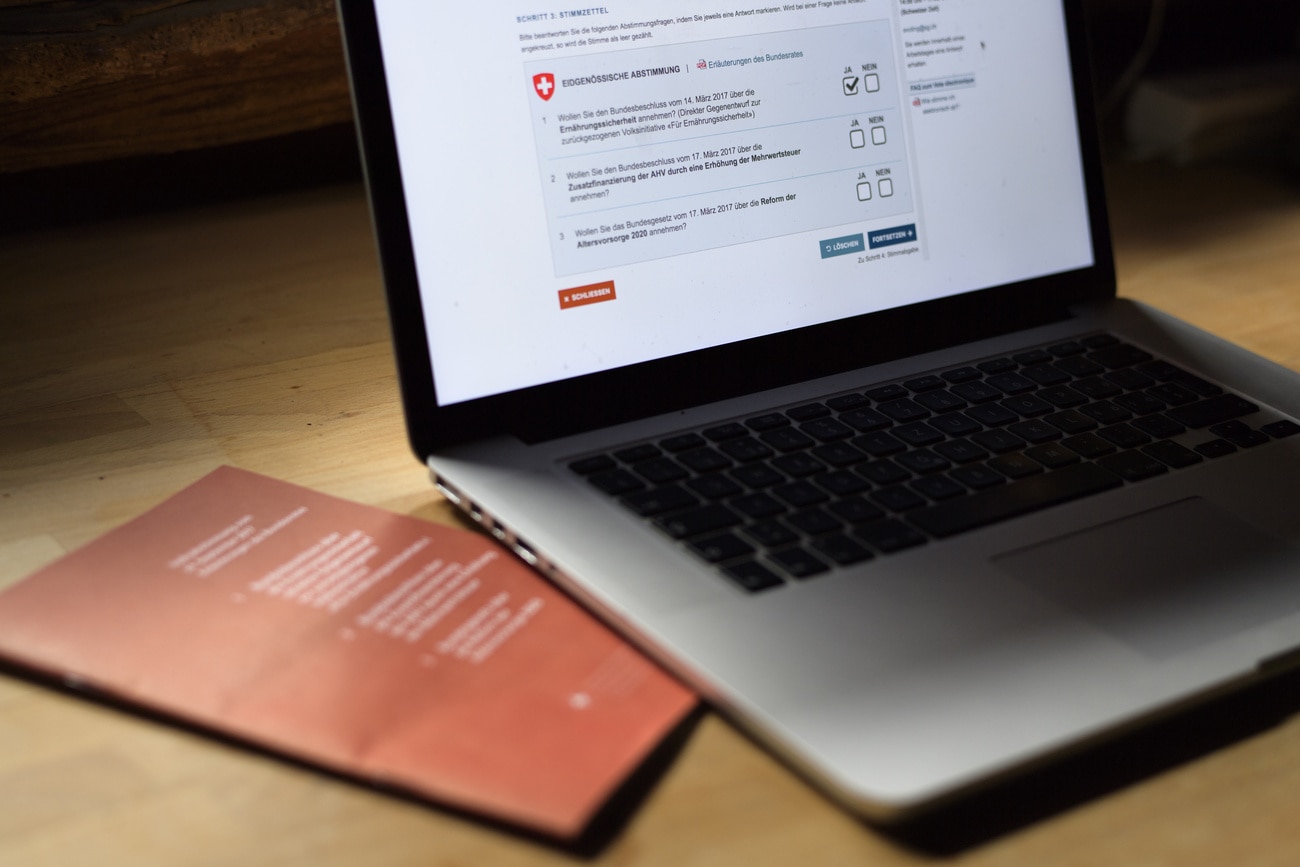The Swiss Freedom Movement has launched a popular initiative calling for a ban on electronic voting (e-voting). The group wants to make postal voting more secure.
The federal popular initiative “For a secure vote and election” was submitted to the Federal Chancellery on Tuesday, according to a statement by the Swiss Freedom Movement on Wednesday evening.
Richard Koller, president of the Swiss Freedom Movement and a computer scientist, said electronic voting should be banned as it “will never be secure”.
The group wants postal voting to be made more secure, in particular for the vote reply envelope sent to Swiss citizens to meet additional security criteria. These must be supplied by the municipalities after an election has been accepted and must be neutral, not coded and have internal security printing, the group said in a statement.
The Swiss Freedom Movement were behind a 2020 initiative to make vaccination consent mandatory and a 2021 initiative to prevent any future phasing-out of cash.
The use of e-voting is an ongoing issue in Switzerland. The Swiss government has authorised the cantons of Basel City, St Gallen and Thurgau to trial electronic voting in the October elections for a limited number of voters.
The decision comes after the same three cantons were allowed to use the Swiss postal service’s new e-voting system for the June 18 national votes. The cantons and Federal Chancellery viewed the first use of the new system in a popular vote as a success.
The previous time e-voting was used in federal elections was in 2015, when it was authorised for 132,134 voters in the cantons of Geneva, Lucerne, Basel City and Neuchâtel.
A pilot project to allow e-voting in some cantons was abandoned in 2019 amid technical and security concerns, much to the dismay of the Swiss diaspora around the world who argue that the lack of e-voting reduces voter turnout and is a threat to democracy.



The only right way. Digitilizing most things is fine, but the temper possibilities for anything even close to voting processes is just too big.
The main problem is anonymity. Digital voting where the vote is public is fine - register a gpg key as your ‘official’ one and sign with it when voting.
You don’t want voting to be public though, and any secure digital way to do it is ‘public’, where after the fact you can see that person x voted y
Anonymity is not the problem (who you are). When people are voting we need confidentiality (what you do).
When you go to the polling station, you may come across your neighbor or friends. You recognize them (no anonymity), but you don’t know what they’re voting for (this is confidentiality).
Yes, that is what I meant - with the wrong word.